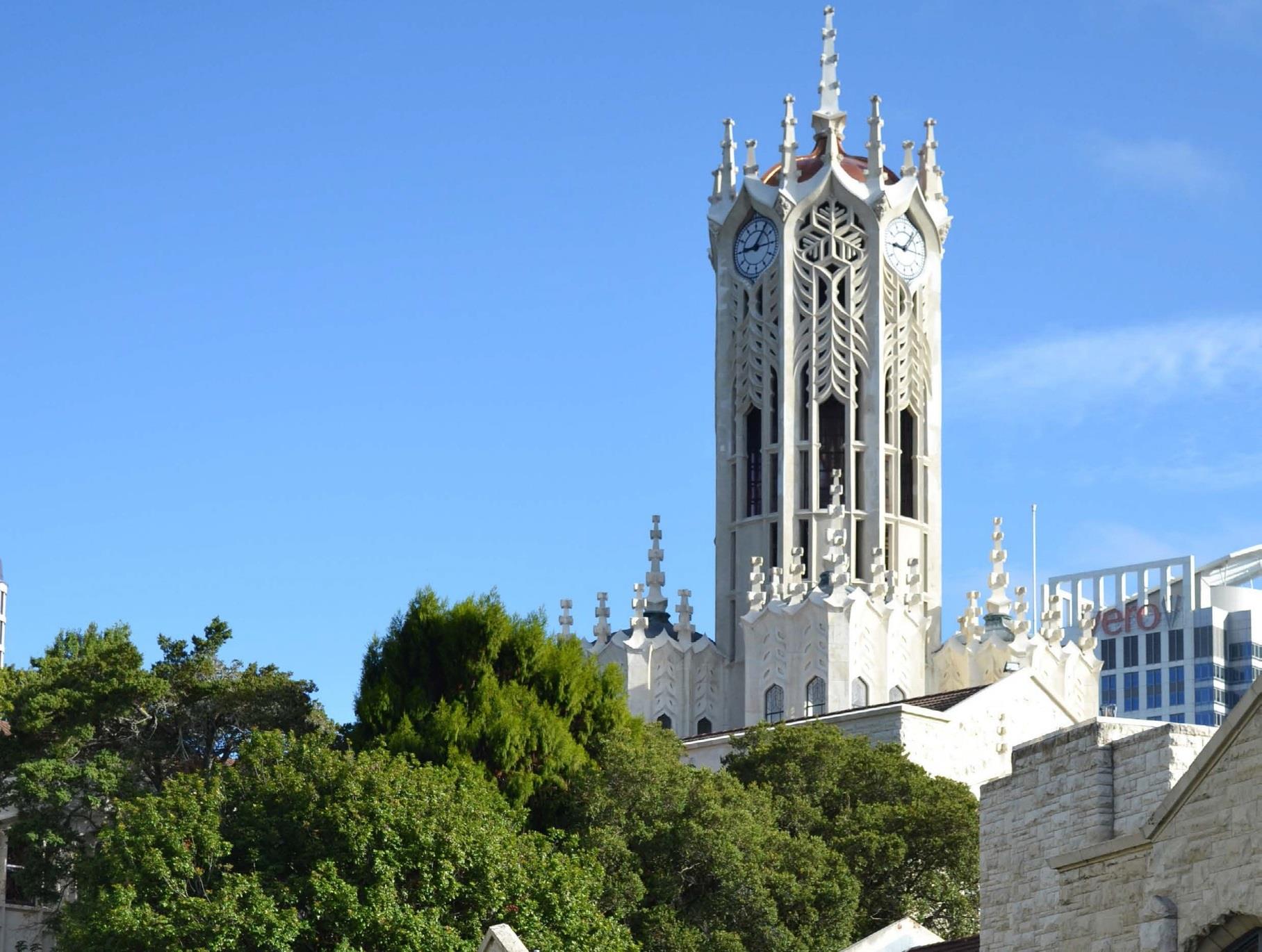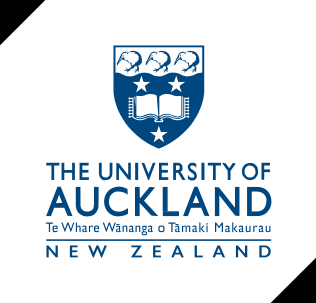

 Appendix D: Student Levy Document
Appendix D: Student Levy Document
1
Contents
What is the Student Levy? ................................................................................................. 3
How is the fee collected? .................................................................................................. 3
How much is collected? .................................................................................................... 3
How can the fees be spent? .............................................................................................. 3
Distribution by recipient ................................................................................................... 4
Distribution by category ................................................................................................... 5
Section 1 Centrally-delivered services
Auckland University Students’ Association (AUSA) ........................................................... 6
Career Development and Employability Services .............................................................. 6
Chapel and Prayer Services .............................................................................................. 7
Clubs and Societies .......................................................................................................... 7
Disability Services ............................................................................................................. 7
Early Childhood Education ............................................................................................... 7
Events and Student Recognition Awards .......................................................................... 8
Health and Counselling .................................................................................................... 8
International Student Support .......................................................................................... 8
Orientation Programme ................................................................................................... 8
Residential Advisers ......................................................................................................... 9
Sport and Recreation ....................................................................................................... 9
UniGuide Programme ...................................................................................................... 9
Section 2 Faculty-delivered services
Faculty of Arts .................................................................................................................. 10
Business School ................................................................................................................ 10
Faculty of Creative Arts and Industries .............................................................................. 10
Faculty of Education and Social Work ............................................................................... 10
Faculty of Engineering ...................................................................................................... 10
Faculty of Law .................................................................................................................. 10
Faculty of Medical and Health Sciences ............................................................................ 10
Faculty of Science ............................................................................................................ 10
Section 3
The procurement of services ............................................................................................ 10
The consultation process .................................................................................................. 11
Appendices ...................................................................................................................... 12
2
Consultation Paper on the
Student Levy 2018
What
is the Student Levy?
The Student Levy or Student Services Fee is the fee paid by an enrolled student for student
support services provided by the University.
The fee is $6.78 per point (on average that works out to be $813 per year for a typical
undergraduate taking eight papers in a year). Both international and domestic students pay the
same amount. Postgraduates are charged the same fee per point as undergraduate students.
How is the fee collected?
The fee is collected at the same time that tuition fees are billed. For first year students whose fees are being
covered under the Fees-free government policy, your Student Levy will also be covered by this initiative for
the first year of your study.
How much is collected?
Each year, the University collects approximately $20m in student levies.
How can the funds be spent?
The Education Amendment Act (2011) gives the Tertiary Education Minister the power to issue directions to
universities on the categories of services that universities can use the compulsory student levy to fund. Those
categories are currently:
•
Advocacy and legal advice
•
Careers information, advice and guidance
•
Counselling and pastoral care
•
Employment information
•
Financial support and advice
•
Health services
•
Media
•
Childcare services
•
Clubs and societies
•
Sports, recreation and cultural activities
For a fuller description of these categories see Appendix 1.
3











































 Distribution by recipient
Distribution by recipient
Below is the 2017 breakdown of levy allocation by faculty or centrally-delivered service.
Capital charge for new Recreation Centre
Health & Counselling
$278,271
$205,963 $165,579
AUSA
$345,378
$103,113
$376,355
Sport and Recreation
$60,642
$426,357
Faculty of Medical Health Science
$434,420
Residential Advisors
$535,173
Career Development and Employment Services
$550,099
Business School
$5,177,572
Events and Student Recognition Awards
$692,789
Clubs and Societies
Faculty of Education and Social Work
$699,520
Distribution
Faculty of Engineering
$717,432
Faculty of Law
by recipient
$816,796
Early Childhood
$2,155,406
Faulty of Arts
$1,281,437
International Student Support
$1,664,092
Disability Services
$1,390,533
$1,406,583 $1,553,242
Faculty of Science
Orientation
Chapel & Prayer Spaces
UniGuides
Faculty of Creative Arts and Industries
4
Distribution by category
Below is the 2017 breakdown of levy allocation by the current categories listed by the Tertiary Education
Minister.
$82,159.49
$76,360.38
Sports and recreation
$401,210.02
$54,386.36
$1,494,388.64
Counselling services and
pastoral care
$1,699,683.26
Health Services
Careers information, advice and
guidance
Clubs and societies
$8,328,790.34
$2,238,433.21
Distribution by
Advocacy and legal advice
category
Childcare services
Media
$2,691,784.24
Employment information
$3,969,556.85
Financial support and advice
5
What does the University spend it on and why?
Funding is disbursed to both faculties and centrally-delivered services. Following is a breakdown of how
the 2017 funds were allocated.
Auckland University Students’ Association (AUSA): $1.66m
What we spend it on:
A proportion of the funding is passed to AUSA under the 2012 Deed of Settlement. This agreement
outlines the role that AUSA should take in supporting students. The focus of AUSA’s responsibility is on
advocacy, running events and representation (this involves operating a class representative system,
sitting on high-level University committees, ensuring concerns are addressed at the appropriate levels and
advocating for individual students where required). In addition to this, AUSA are expected to support the
financial welfare of students (e.g. supporting students to access the financial support available to them or
providing grants directly to support or alleviate financial difficulties). However, AUSA is free to provide
other services and initiatives to students where appropriate.
Why we think it’s important:
It is essential to have a strong student voice. AUSA plays an important role in representation and advocacy
for both individuals and student groups. Without this funding, avenues for student consultation and
feedback would be severely diminished and the process for hearing the student voice to enable continual
improvements would be limited.
Career Development and Employability Services (CDES): $1.28m
What we spend it on:
CDES assists students with all aspects of career development from year 1. Students have access to a range
of online resources and tools. These include:
•
A career service management system that allows students to self-manage their career activities and
access a job board.
•
Workshops, small group and individual appointments with a career development consultant.
•
A comprehensive website and online career modules
•
Expos, recruitment, career education and other related events to assist students in meeting and
engaging with employers and alumni, providing them with an understanding of the opportunities
available and the requirements of the world of work.
CDES engages proactively with employers, bringing them onto campus for career expos, recruitment,
career education and other related events. CDES is committed to increasing work based learning activity
to support the transition from the classroom to the workplace and develop professional skills to help
students understand their capabilities and what they can offer the employer.
Why we think it’s important:
Employability is one of the key focuses of the Tertiary Education Strategy 2014- 2019. Priority 1 of the strategy is
‘Delivering skills for industry’. Therefore, career development for students ensures they are employable and ‘work
ready’, allowing the University to meet TEC requirements but more importantly, meets students’ expectations that
the University will support them in their career development.
6
Chapel and Prayer Spaces: $165,579
What we spend it on:
A Christian chapel and Muslim prayer space on the City Campus, and prayer spaces at Grafton, Newmarket, Epsom
and Tāmaki are available for students to use.
Why we think it’s important:
We recognise that for some students faith and spirituality has an important role to play during their time at
University. Many have specific requirements in relation to practicing their faith and by providing a physical space
on campus students are able to effectively combine their studies with their spiritual needs.
Clubs and Societies:$ 699,520
What we spend it on:
• $348,512 Club and Association grants
• $351,007 Club support
Approximately 240 clubs on campus are supported through administrative assistance, equipment, resources,
grants, events, expos, development workshops, training and meeting spaces.
Why we think it’s important:
Having a range of strong student clubs is important in contributing to student engagement levels across the
University. Well-run clubs with strong and active memberships means that a diverse range of events and activities
are in place for students to engage in. Clubs also offer important leadership and development opportunities to
those students who take on executive positions and are responsible for the governance, finances and operations of
a small organisation – skills that employers look for.
Disability Services: $345,378
What we spend it on:
Student Disability Services (SDS) provides support for students with a wide range of impairments, both
visible and invisible. From ensuring the campus can be safely accessed by all students, to advising and
assisting individuals and departments in how to access a range of specialist equipment such as adaptive
technology and specialist services such as New Zealand Sign Language Interpreters.
Why we think it’s important:
The University is committed to ensuring that all students have the opportunity of reaching their potential
irrespective of their disability. By providing support and advice, the University aims to break down
barriers and give students the best possible chance of succeeding in their chosen field.
Early Childhood Education: $434,420
What we spend it on:
There are six university-managed early childhood centres at Epsom, Grafton and City campuses. The funding
provided subsidises the costs of access to childcare services for students
Why we think it’s important:
Early Childhood Centres allow students with pre-school aged children to have access to cost-effective,
high quality childcare which is conveniently located for them and also is suited to the student timetable. If
this service was not available, students with pre-school aged children would have to find childcare in
possibly less convenient locations.
7
Events and Student Recognition Awards: $717,432
What we spend it on:
The University offers a broad range of recreational, cultural and recognition-based events for students,
which are either free of charge or heavily subsidised. The events are designed to appeal to a range of
interests and span cultural, music, performance, sport and skill development. In 2017, approximately
10,000 students attended one of these events. In 2017 the University spent additional funds on events
through AUSA, including Party in the Park, Winterfest and other on-campus events.
Why we think it’s important:
Both academic and social engagement are key to academic success. In institutions as large as this one,
with a high proportion of students commuting rather than living on campus, social engagement becomes
especially important. A range of small, medium and large events on campus that cater to the diverse
student body enables students to take a break from their study and assists in helping students make
connections with others, create a sense of belonging, promotes wellbeing and contributes to good
student outcomes.
Health and Counselling: $2.1m
What we spend it on:
An experienced team of doctors, nurses and counsellors which provides a comprehensive range of primary
health care services at City, Epsom and Grafton campuses. This funding allows appointments to be either
free or subsidised for students. Funding has been used to reduce the wait times and increase the
accessibility to this vital service.
Why we think it’s important:
The Health and Counselling Service plays an important role in helping students to overcome the personal
barriers to University retention and academic success that can arise from physical or mental health issues.
Resources and outreach support provided by Health and Counselling enables staff and students across the
University to proactively intervene and deal with students in distress at an early stage.
International Student Support: $376,355
What we spend it on:
Funds are put towards staffing a team of International Student Advisers.
Why we think it’s important:
The International Student Support team is responsible for managing and implementing a comprehensive range
of support services to enhance the education and social experience of international students. International
students have unique needs and requirements while studying away from their home country. The service is free
and confidential.
Orientation Programme: $205,963
What we spend it on:
Funds are used to cover Pōwhiri costs such as catering, venue, infrastructure; as well as developing content for
and promoting both the New Student Guidebook App and the online orientation platform.
Why we think it’s important:
Transition to University is a critical time for students. It is essential the University provides a welcoming and
inclusive experience that helps students become familiar with their new surroundings. Making sure that students
are able to access information and useful resources ahead of their arrival gets students off to a great start at the
University of Auckland which is essential to student success.
8
Residential Advisors: $1.39m
What we spend it on:
A team of 79 students is employed as Residential Advisors (RAs) in all University accommodation. RAs are
current students who live in the University residences and work part-time in providing support and
guidance for students living in the halls.
Why we think it’s important:
Halls of Residence provide a high-quality and safe environment for students to live in close proximity to
the University. In addition, students have access to support services (ranging from academic support to
recreational activities and peer support) which is organised by managers of the residences and the live-in
RAs.
Sport and Recreation: $6.73m
What we spend it on:
•
$5.18m Capital charge*
•
$1.55m Rec Centre student membership subsidy, sporting programmes,
tournaments, competitions and staffing
Why we think it’s important:
Physical activity is widely recognised as an important contributor to student wellbeing, engagement, retention,
and academic success. In addition to the obvious physical health benefits, several international studies have
identified the positive impact physical activity has on cognitive abilities and on preventing mental illness, both of
which are especially important for the university student demographic. Studies within university environments
have shown physically active students achieve higher than average GPAs and better career outcomes.
UniGuide Programme: $103,113
What we spend it on:
A team of approximately 300 UniGuides volunteer to support students new to the University. Funds are used for
uniforms, training, materials, staff support and reward and recognition.
Why we think it’s important:
UniGuides are senior students who provide a peer-support service to help new students navigate the University
and form social groups. They raise awareness of the support services available and encourage new students to
ask for help if they need it. Data from the programme shows that those students who sign up for a UniGuide tend
to do better academically than those who do not access the programme.
* Capital Charge
The capital charge has been collected every year since 2012 to build up reserves for the building of a new
recreation facility on the City Campus. Considerable student consultation has taken place to ensure what will be
provided meets the needs of the student body. Once this build is completed (expected to be in 2022), the use of
the fund will be re-directed to the development of student-focused building projects, further consultation on
this will be taken with SCG in due course.
9
Faculty-delivered services
Faculties deliver a range of services to support student success and engagement. The following is the breakdown
of Faculty expenditure in 2017.
Faculty
Expenditure
Summary
Arts
$426,357
First Year Experience (FYE) Programme and support initiatives
to meet the faculty’s equity objectives. Arts internship
coordinator costs, online and publications activities including
Online Orientation and social media.
Business
$816,796
Career development programmes and activities and clubs and
societies support.
Creative Arts and
$60,642
Careers events, information, advice and guidance. Pastoral
Industries
care at its broadest sense, including all equity and target
groups of interest.
Education and
$692,789
Student support at Epsom, Tai Tokerau and MIT including
Social Work
Orientation and induction days, graduation events, financial
advice and support, FYE Programme, Support advisors. Sports
equipment, gym costs, safety equipment. Support for Maori
and Pacific students.
Engineering
$550,099
Clubs and societies, student engagement support and activities,
careers and employment services and media.
Law
$535,173
Faculty support for equity initiatives and student engagement,
pastoral care and well-being.
Medical and Health $1.41m
Student support including career and employment support,
Sciences
counselling and pastoral care, financial support, advocacy and
vaccinations.
Science
$278,271
Staffing and student support costs including sports, recreation,
cultural events, Orientation, clubs and societies. Careers fairs,
information and advice, support for targeted Equity initiatives.
The procurement of services
Procurement is based on the five principles as outlined in
the Government Rules of Sourcing which are:
1.
Plan and manage for great results
2.
Be fair to all suppliers
3.
Get the right supplier
4.
Get the best deal for everyone
5.
Play by the rules
When making procurement decisions at the University, a range of factors are taken into account including, but
not limited to, value for money, taking into account whole-of-life costs, fit for purpose, quality, reliability, impact
of market position (i.e. dominance), ethics, risk management, service levels, environmental impacts,
technological change, contract and relationship management and transparency and accountability.
10
The consultation process
The Student Consultative Group (SCG) is the consultation forum for the levy. This group is made up of student
and staff representatives and is chaired by the Vice-Chancellor. This group makes recommendations to the
Finance Committee and Council in August. Council sets fees in October.
Students can talk directly with their representative on the SCG to make their views known on the levy. To find out
who is on SCG, visi
t https://www.auckland.ac.nz/en/about-us/about-the-university/the-university/governance-
and-committees/committees/a-z-committees/student-consulative-group.html.
Students can also make their voice heard by completing a short online survey
at: www.auckland.ac.nz/levy.
11
Appendices
Appendix 1
The Education Amendment Act (2011) gives the Tertiary Education Minister the power to issue directions
to Universities on the categories of services that Universities can use the compulsory student levy to
fund. Those categories are currently:
Category
Description
Advocacy and legal advice
Advocating on behalf of individual students and groups of students,
and providing independent support to resolve problems. This
includes advocacy and legal advice relating to accommodation.
Careers information, advice and
Supporting students’ transition into post-study employment.
guidance
Counselling services and pastoral care
Providing non-academic counselling and pastoral care, such as
chaplains.
Employment information
Providing information about employment opportunities for students
while they are studying.
Financial support and advice
Providing hardship assistance and advice to students on financial
issues.
Health services
Providing health care and related welfare services.
Media
Supporting the production and dissemination of information by
students to students, including newspapers, radio, television and
internet-based media.
Childcare services
Providing affordable childcare services while parents are studying.
Clubs and societies
Supporting student clubs and societies, including through the
provision of administrative support and facilities for clubs and
societies.
Sports, recreation and cultural activities Providing sports, recreation and cultural activities for students.
12
Appendix 2
A comparison of other New Zealand Universities non-tuition fees 2018
Massey
Massey
NZ$ (GST inclusive)
Canterbury
Otago
Waikato Victoria Auckland AUT
(Manawatu) (Albany)*
Building Levy
29.90
69.60
Student Amenities
Levy
Student Assistance
24.00
Welfare &
74.40
153.20
Recreation
Student Services
811.00
567.40
567.40
798.00
519.00 756.00
813.00
627.10
Student Association
Foundation Levy
23.80
23.80
TOTAL - 2018
811.00
695.50
744.40 798.00
519.00
780.00
813.00
696.70
TOTAL - 2017
795.00
681.40
963.50
739.00
479.00
754.50
765.00
683.00
TOTAL - 2016
770.00
670.60
948.00
732.00
467.80
742.00
754.80 Unknown
% change vs. 2017
2.0
2.1
-22.7
8.0
8.4
3.4
6.3
2.0
$ change vs. 2017
16.00
14.10
-219.10
59.00
40.00
25.50
48.00
13.70
* the decline is due to the removal of the Student Amenities levy which was previously charged for Students at the Albany campus
13














































